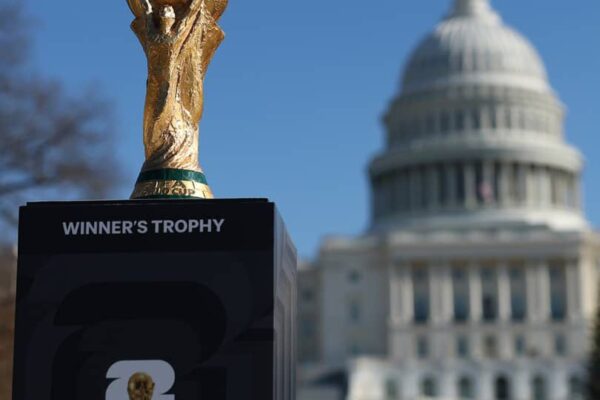Fifa Unveils Five-Point Plan to Combat Racism in Football
Fifa has unveiled a comprehensive plan comprised of five key pillars aimed at combatting racism within the realm of football.
The global governing body of the sport announced that the initiative stemmed from extensive consultations with current and former players who are deeply committed to instigating change within the sport.
Among the proposals outlined in the plan is the introduction of a universally recognized hand gesture, symbolizing a stand against racism, to be employed by players during matches to signal instances of racial abuse.
Dubbed the ‘Global Stand Against Racism’, the proposal is set to be presented to Fifa’s 211 member associations during its annual congress in Bangkok later this week.
The first pillar of the plan seeks to classify racism as a distinct offense within the disciplinary codes of all member associations, with prescribed severe sanctions, including the potential forfeiture of matches.
Fifa has also pledged to take decisive action during matches, including pausing, suspending, or abandoning games in cases of racist incidents.
Under pillar three, Fifa advocates for the recognition of racism as a criminal offense globally, advocating for stringent penalties in jurisdictions where such legislation already exists.
Additionally, the organization plans to spearhead educational campaigns in collaboration with schools and governments to foster a future devoid of racial prejudice.
Moreover, an anti-racism panel comprising former players will be established to monitor the progress of the proposal’s implementation.
Recent incidents of racism within football, including the poignant remarks by Brazil and Real Madrid winger Vinicius Jr expressing his disillusionment, highlight the urgency of addressing this pervasive issue.
In response to Fifa’s proposals, anti-discrimination charity Kick It Out has expressed reservations. Chief Executive Tony Burnett criticized the lack of specificity in the plans, asserting that burdening players with the responsibility of devising solutions is unjust.
He emphasized the need for empowering players and officials to walk off the pitch when faced with racism and stressed the imperative of enhancing referees’ education on such matters.






